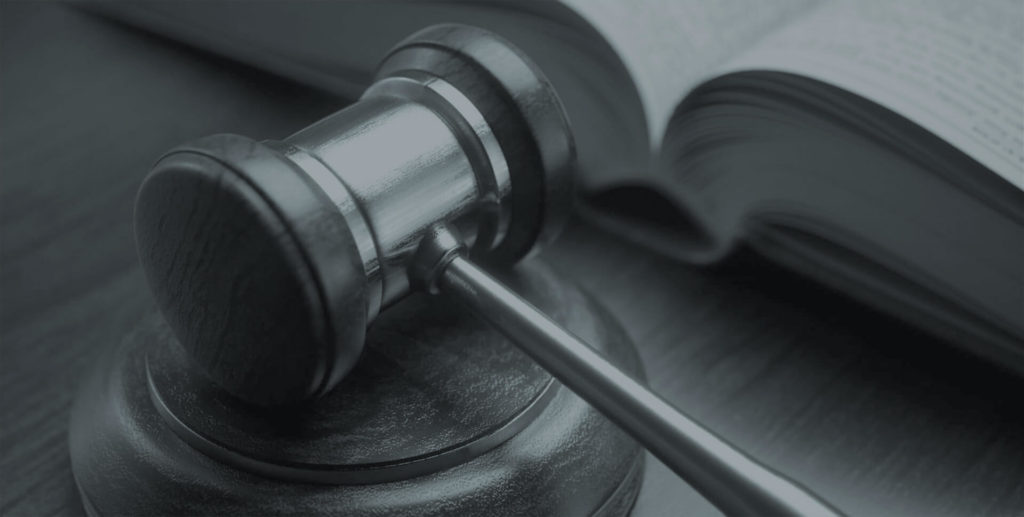Send your enquiry.
Contact us for a free, initial no obligation consultation.
"*" indicates required fields
Your information is safe and treated in accordance with our Privacy Policy
There are so many motoring law myths in circulation, both on the internet and passed on by word of mouth. Many of them have never been true, while others are based on out-of-date information.
This is dangerous, because it may lead you to pursue a faulty defence – such as a loophole that will never stand up in court, or an inaccurate assumption that lands you in greater trouble with the law. This could result in penalties that could otherwise have been avoided, had you sought expert legal advice.
Here, we bust 10 motoring myths that we hear on a frequent basis, helping you to sort the fact from the fiction. However, this is no replacement for professional, up-to-the-minute legal advice. If you want to talk to a solicitor about a motoring offence, call us on 0333 009 6275. We are available 24 hours a day, 7 days a week.
You can also email us on enquiries@ashmanssolicitors.com or complete our Free Online Enquiry Form and we will contact you.
Myth 1 – I don’t have to identify the driver because it’s a breach of my human rights
Wrong!
You are legally obliged to identify the driver. Being asked to identify the driver does not amount to a breach of your human rights, nor are you protected by a right to silence. These arguments have been unsuccessfully tested in court before.
In one case, two British drivers lost their appeal to the European Court of Human Rights after claiming a right to silence. The judges concluded that vehicle owners “accepted certain responsibilities and obligations”, which includes informing “the authorities of the identity of the driver” in the event of a suspected road traffic offence.
Therefore, if you receive communication from the police asking you to identify the driver at the time of an alleged offence, you must make every effort to comply with this request. Possible penalties for failing to identify the driver of the vehicle.
Myth 2 – I can just say I don’t know who the driver is and the problem will go away
Wrong!
If you know who was driving the vehicle at the time of the alleged offence, then you must say so. If you shrug your shoulders (metaphorically speaking), or you do not reply, then you will be charged with failing to identify the driver. This carries a fine and up to six penalty points.
If you are unsure who was driving the vehicle, then you must make reasonable efforts to find out. If you genuinely cannot be certain who it was, then you must prove that you have taken reasonable steps to identify the driver. Otherwise, you will be prosecuted for failing to identify the driver.
The problem will not go away if you pretend that you do not know who was driving. In fact, you could create further problems for yourself.
Myth 3 – I can give the points to someone else and the police will never know
Wrong!
Allowing someone else to take penalty points on your behalf is a criminal offence and you will be charged with perverting the course of justice. This has happened to several high-profile figures in the past, including Members of Parliament.
Perverting the course of justice is a serious offence with a very real prospect of imprisonment. You might be tempted to give the points to someone else – especially if you already have nine points on your licence – but we strongly advise against it. It is better to fight the alleged offence, or plead a case of exceptional hardship if you face a totting up ban.
Do not make a false declaration to the police – the authorities have ways of finding out. Instead, contact our solicitors and fight the charge through the proper channels.
Myth 4 – I can avoid a drink driving ban by refusing to give a sample
Wrong!
Failing to provide a specimen is a criminal offence in its own right. It carries between three and nine penalty points and a mandatory 12 month driving ban. So, you will not avoid a disqualification by refusing to provide a sample of breath, blood or urine.
You can only refuse to provide a specimen if you have reasonable grounds for doing so. For instance, you might be unable to successfully blow into a breathalyser due to a respiratory condition or disability. Or, you might be unable to have a blood test because of a genuine fear of needles.
If you do not have a good excuse, then you are not being clever by refusing to give a sample. You will still receive a driving ban; it will just be for a different offence.
Myth 5 – I have a defence based on the fact that there is a mistake on my Fixed Penalty Notice
Wrong!
Minor mistakes are common on Fixed Penalty Notices. The police may have misspelled your name, got your date of birth wrong, or written down the wrong date. It does not really matter – you can still be prosecuted.
Of course, if the mistake is that you did not commit the alleged offence, then that must be brought to the court’s attention. The police officer who attended the scene will be the main prosecution witness. Any mistakes on the Fixed Penalty Notice can bring the police officer’s reliability into question.
However, you will not win your case simply by saying there is a mistake in the paperwork. Instead, you must ensure that the prosecution cannot prove your guilt beyond reasonable doubt.
Myth 6 – I can give the points to a foreign national and that will be the end of the matter
Wrong!
Honesty is the best policy when it comes to identifying the driver. The problem will not simply ‘go away’ if you lie and say that a foreign national was driving. In fact, this used to be a common defence and the police are wise to it.
If you do say that a foreign national was driving at the time of the alleged offence, the police will check to see whether the individual was insured to drive the vehicle. If not, you could face a separate charge of allowing someone to drive while uninsured. This carries between six and eight penalty points, plus a fine.
So, if you try to push the problem onto someone else who is out of the country, you could just create other issues. You could also be prosecuted for perverting the course of justice.
Myth 7 – I can drive my new car on my old insurance policy
Wrong!
When you buy a vehicle, you are the new legal owner – and this means that you must have a valid insurance policy for that vehicle. This applies even if you are not yet the registered keeper of the vehicle.
There is no allowance for driving without insurance when taking a new car home. You cannot drive the vehicle under your old insurance policy, even if it allows you to drive another person’s vehicle. This is because you are not driving another person’s car – you are driving your own car! Also, you cannot drive it under the previous owner’s insurance policy.
This is a complicated area of law and it often catches people out. Ultimately, as soon as you take possession of a vehicle, you must insure it.
Myth 8 – the police cannot test for drug driving
Wrong!
The police now have the technology to take saliva samples at the roadside to screen for cannabis and cocaine. If this produces a positive result, you can be taken back to a police station for a blood test.
If the saliva test is negative, you can still be asked to perform a field assessment test. If you fail this, you can be taken back to the police station for a blood test. The blood sample is then sent to a laboratory for analysis.
Find out more about drug driving.
Myth 9 – I can’t be prosecuted because even though I was drunk, I didn’t drive anywhere
Wrong!
Although you cannot be accused of drink driving, you can still be prosecuted for being drunk in charge of a vehicle. This means that you were in control of a vehicle while over the legal alcohol limit.
Not many people know about this offence and it often catches people out. You might decide to sleep in your vehicle while intoxicated, or sit behind the wheel of your car while you make a phone call. If you have the keys in your possession, and the police believe that you had the intention to drive while you were still over the legal limit, then you will be prosecuted.
The key to defending a drunk in charge offence is to prove that you had no intention to drive the vehicle while over the drink drive limit.
Myth 10 – I can’t be done for using a mobile while driving because I didn’t make a phone call or send a text message
Wrong!
The law changed in 2022 so that it is now illegal to use a mobile hand-held device in virtually all circumstances while driving. So, you cannot touch your mobile while driving for any reason, unless you need to call 999 or you are paying at a drive-thru.
You can use your phone via your vehicle’s infotainment system and/or via hand-free technology (such as voice control). This means you can link your device to your car and make calls while driving, so long as you do not touch your phone. Instead, you can use voice commands or use the vehicle’s buttons/touch screen.
However, you could still be prosecuted for dangerous driving if using a hands-free device distracts you.
Do you need a solicitor?
There is a lot of free advice on the internet, but a lot of it simply is not true. If you want to know what your next best steps are, the only way to find out is to speak to a motor defence solicitor. Without expert legal advice, you run the risk of creating more trouble for yourself.
We often see unrepresented defendants in court who run with a faulty defence, or plead guilty when they could have overturned the charges. Do not let this be you. Get initial advice from our solicitors to discuss your case in more detail. We can explain what defences are open to you (if any), and what the best strategy is.
Find out more about our motoring defence fees.
Contact us now
Are you facing a motoring offence? Call us on 0333 009 6275. We are available 24 hours a day, 7 days a week.
You can also email us on enquiries@ashmanssolicitors.com or complete our Free Online Enquiry Form and we will contact you.




